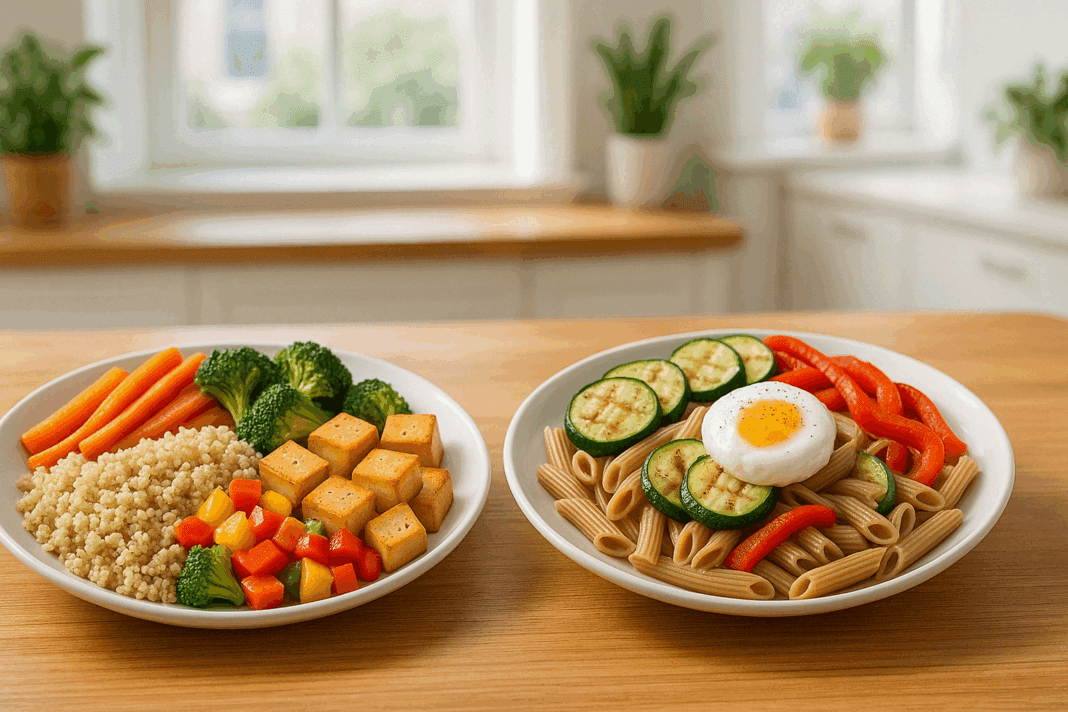In recent years, the popularity of plant-based diets has surged among health-conscious individuals, ethical consumers, and environmentally aware communities. However, despite the growing interest in plant-based eating, confusion often arises about what it truly means to be vegan versus vegetarian. These terms are frequently used interchangeably, but they carry distinct definitions and dietary practices that can have significant implications for health, performance, and sustainability. This article explores the nuanced differences between vegan and vegetarian diets, their respective health benefits, and what the science says about adopting a plant-based lifestyle—especially for those interested in a vegan athlete diet meal plan or looking to optimize a plant based diet for athletes.
You may also like: Plant Based Diet vs Standard American Diet: What the Latest Studies Reveal About Long-Term Health Outcomes
Understanding Vegan and Vegetarian Diets
A vegetarian diet is typically defined as one that excludes meat, poultry, and fish but includes dairy products and eggs. There are several variations within vegetarianism, including lacto-vegetarian (includes dairy, excludes eggs), ovo-vegetarian (includes eggs, excludes dairy), and lacto-ovo vegetarian (includes both dairy and eggs). Veganism, on the other hand, eliminates all animal-derived products, including dairy, eggs, honey, and even certain additives like gelatin and casein. Veganism often extends beyond diet to a lifestyle that avoids animal exploitation in all forms, including clothing, cosmetics, and household products.
The core distinction between vegan and vegetarian diets lies in the degree of exclusion. While vegetarians may still consume animal by-products, vegans commit to a diet entirely free from animal sources. This stricter adherence has implications for both health outcomes and nutrient intake, as well as ethical and environmental considerations.
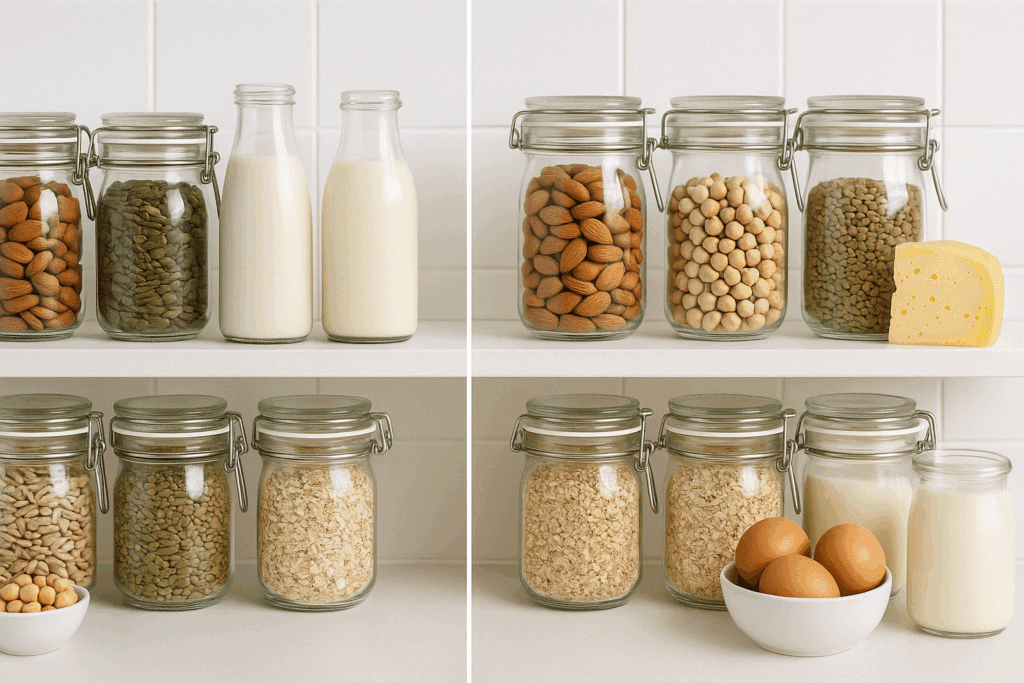
Health Benefits of Plant-Based Diets
Both vegan and vegetarian diets have been extensively studied for their health-promoting properties. According to the Academy of Nutrition and Dietetics, appropriately planned plant-based diets are healthful, nutritionally adequate, and may provide health benefits in the prevention and treatment of certain diseases. Among these, cardiovascular disease, type 2 diabetes, obesity, and certain forms of cancer are most commonly cited.
For instance, epidemiological studies show that vegans typically have lower body mass indices (BMI), reduced cholesterol levels, and better blood glucose control than omnivores. Vegetarians often enjoy similar benefits, though the inclusion of dairy and eggs can influence fat and cholesterol intake. Plant-based diets are also rich in fiber, antioxidants, phytochemicals, and anti-inflammatory compounds, all of which contribute to improved metabolic function and reduced chronic disease risk.
A critical consideration is that these benefits stem not just from the exclusion of animal products but from the inclusion of whole, minimally processed plant foods. A whole-food plant-based diet emphasizes vegetables, fruits, legumes, whole grains, nuts, and seeds while limiting refined sugars, oils, and processed foods. This dietary pattern is distinct from simply being “vegan” or “vegetarian,” as it focuses on nutrient density rather than labels.
What Plant-Based Really Means
The term “plant-based” has become a popular but often misunderstood descriptor. While some use it synonymously with vegan, its actual meaning is more nuanced. A plant-based diet prioritizes plant foods as the central part of the diet but does not necessarily exclude all animal products. In practice, however, many individuals who identify as plant-based follow a dietary pattern very similar to a vegan or whole-food plant-based approach.
For athletes and active individuals, the plant-based paradigm is particularly compelling. A well-planned vegan athlete meal plan can provide all the macronutrients and micronutrients required for peak performance, muscle recovery, and endurance. This includes sufficient protein, iron, calcium, omega-3 fatty acids, and vitamin B12—nutrients that are often scrutinized in plant-based diets but can be met through intentional food choices and supplementation when needed.

Plant Based Diet for Athletes: Nutritional Considerations
Contrary to outdated myths, a plant based diet for athletes can support elite-level performance and even offer advantages in recovery and inflammation control. Plant foods are naturally high in antioxidants, polyphenols, and other phytonutrients that help mitigate exercise-induced oxidative stress. Moreover, plant-based proteins like lentils, tofu, tempeh, quinoa, and soy milk can provide adequate essential amino acids when consumed in a varied diet.
Protein timing and total daily intake are key. While plant proteins may have slightly lower bioavailability than animal proteins, this can be easily offset by increasing the total amount consumed and combining complementary protein sources throughout the day. For example, pairing legumes with grains—such as beans with brown rice—ensures a complete amino acid profile. A vegan athlete meal plan should also include iron-rich foods like lentils, spinach, and fortified cereals, along with vitamin C-rich foods to enhance absorption.
Caloric intake is another important factor. Plant-based diets tend to be less calorie-dense, which can pose a challenge for athletes with high energy expenditures. To address this, athletes can include energy-dense but nutrient-rich foods such as nut butters, avocado, dried fruit, and smoothies. Planning meals and snacks that balance carbs, fats, and proteins is essential for optimal performance and recovery.
Navigating the Low-Carb Trend: Is Keto a Low Carb Diet?
In the context of rising interest in low-carbohydrate eating patterns, many wonder: is keto a low carb diet? The answer is yes—but not all low-carb diets are ketogenic. A ketogenic diet is an ultra-low carb, high-fat regimen designed to shift the body into ketosis, a metabolic state where fat becomes the primary fuel source. In contrast, a general low-carb diet may reduce carbohydrate intake without inducing ketosis. The differences between ketogenic diet vs low carb approaches are important, especially for athletes and plant-based eaters.
When comparing a low carb diet keto diet version with a plant-based plan, it’s essential to understand their distinct physiological impacts. The keto diet drastically limits carbs (usually under 50 grams per day) to increase ketone production, which can aid fat loss and blood sugar control in some individuals. However, this approach may lack fiber, certain vitamins, and plant phytonutrients unless carefully managed.
On the other hand, plant-based athletes who reduce refined carbohydrates while maintaining whole-food complex carbs—like oats, quinoa, and legumes—often experience sustained energy without sacrificing micronutrients. Thus, the debate between keto diet vs low carb diet becomes even more nuanced when plant-based choices are prioritized. While low-carb strategies may appeal to those seeking weight loss or insulin sensitivity improvements, they must be balanced against nutrient diversity and long-term sustainability.
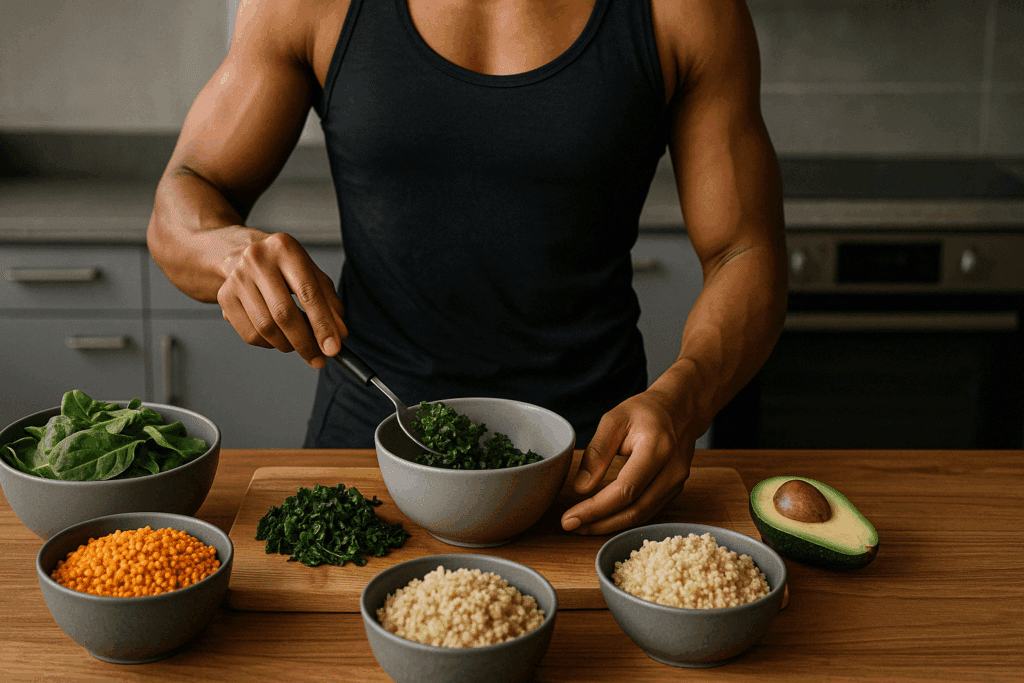
Is a Keto Diet Sustainable for Plant-Based Athletes?
The question “is a keto diet sustainable?” looms large in both health and performance circles. For vegan or vegetarian athletes, adhering to a strict ketogenic pattern can be particularly challenging. The elimination of most carbohydrate sources significantly reduces dietary variety and fiber intake, both of which are foundational to a healthy gut microbiome and athletic recovery. Additionally, achieving ketosis on a plant-based diet often requires an overreliance on oils, nuts, seeds, and coconut-based products, which may skew fat intake toward saturated varieties.
While it is technically possible to follow a vegan or vegetarian keto diet, it demands extensive planning and supplementation to avoid nutritional deficiencies. For most individuals, a moderate reduction in refined carbs, rather than a full ketogenic transition, offers a more balanced and sustainable path. By asking, “is keto no carbs?” we clarify another common misconception. While keto is low in carbohydrates, it is not carb-free; even in ketosis, small amounts of carbs from non-starchy vegetables and nuts are still consumed.
From a long-term perspective, evidence suggests that diets rich in whole plant foods are more sustainable both environmentally and metabolically. They offer long-term protection against chronic diseases while supporting athletic longevity. Therefore, while keto may serve as a short-term intervention for specific goals, a well-structured vegan athlete diet meal plan remains a more practical and sustainable strategy for most active individuals.
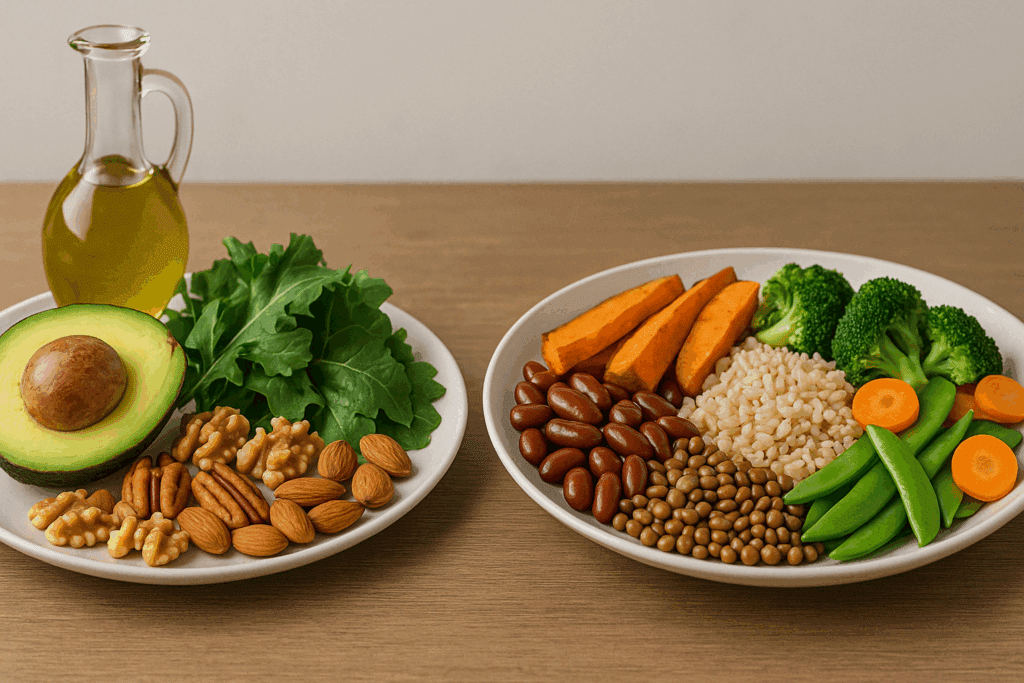
Bridging the Gap: Vegan and Vegetarian Athletes in Practice
Numerous elite athletes across disciplines—runners, weightlifters, bodybuilders, and endurance cyclists—have adopted plant-based diets with great success. Their achievements underscore the fact that performance and muscle maintenance do not require animal-based foods. The key lies in intelligent planning, variety, and nutrient timing.
Vegetarian athletes benefit from the inclusion of dairy and eggs, which can offer convenient protein and micronutrient sources. However, they must still be mindful of saturated fat and cholesterol levels, particularly from full-fat dairy products. Vegan athletes must be especially attentive to nutrients such as vitamin B12, vitamin D, iodine, and omega-3s, which may require fortified foods or supplements. With the right approach, however, these needs can be met without compromise.
A successful vegan athlete meal plan should incorporate strategic food combinations, regular meal timing, and caloric sufficiency. Smoothies with plant protein powder, grain-and-legume bowls, fortified plant milks, and energy-dense snacks can meet both performance and recovery needs. Emphasizing colorful, whole-food ingredients ensures antioxidant and polyphenol diversity, which can enhance muscle recovery and immune function.
Cultural and Ethical Dimensions of Plant-Based Eating
Beyond health and performance, many individuals choose vegan or vegetarian diets for ethical, environmental, or cultural reasons. The ethical argument centers around animal welfare and the belief that animals should not be exploited for food. The environmental rationale is backed by research showing that plant-based diets require fewer natural resources and produce lower greenhouse gas emissions compared to animal agriculture.
From a cultural perspective, plant-based diets have long been practiced in various traditions around the world, from India’s predominantly vegetarian cuisine to the plant-centered diets of Blue Zones—regions where people live significantly longer and healthier lives. These cultural models provide compelling evidence that plant-based eating can support longevity and vitality across diverse populations.
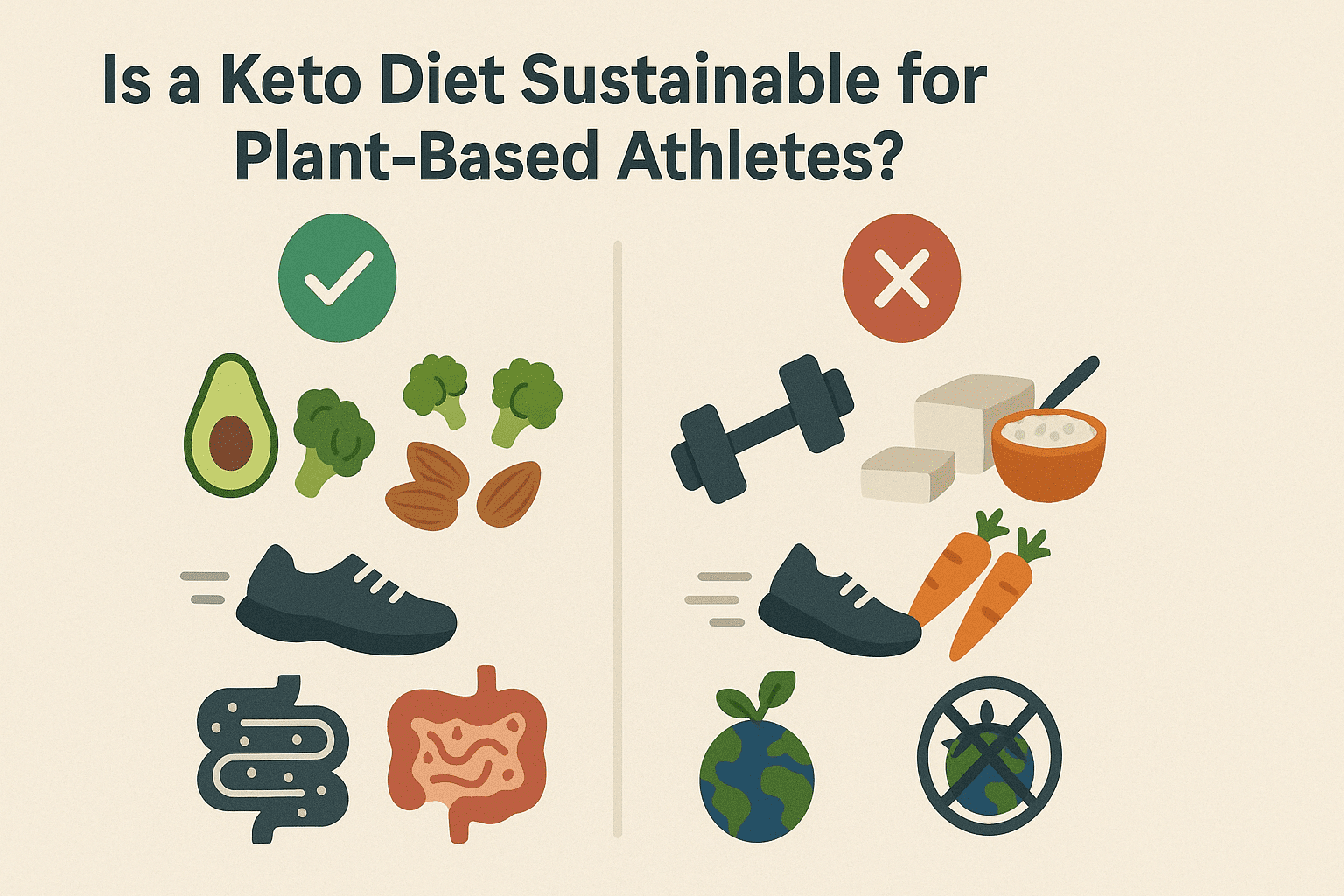
Frequently Asked Questions: Vegan vs Vegetarian Diets and the Plant-Based Spectrum
1. What is the real difference between vegan and vegetarian diets beyond just food choices?
The difference between vegan and vegetarian diets extends far beyond what ends up on your plate.While most people focus on food, the vegan versus vegetarian divide often involves lifestyle choices, ethical frameworks, and environmental philosophies. Vegans tend to align with a philosophy that rejects all forms of animal exploitation, from leather shoes to animal-tested cosmetics. In contrast, vegetarians may abstain from meat for health or cultural reasons but still consume dairy and eggs without necessarily opposing animal-derived non-food products. This broader outlook adds depth to the vegan and vegetarian difference, making it as much about worldview as it is about dietary intake.
2. Is there a difference between plant based and vegan, or are they the same?
Although they are frequently used interchangeably, plant based vs vegan is a discussion rooted innuance. A vegan diet excludes all animal products and often supports animal welfare causes, whereas a plant-based diet is typically focused on health and may include small amounts of animal products on occasion. The term plant based is more flexible and typically associated with health optimization rather than ethical or environmental reasons. When people ask, “is plant based the same as vegan,” the answer lies in intention—one is rooted in health science and dietary balance, while the other is more comprehensive in ethical application. Thus, plant based versus vegan reflects differing motivations, even when the menus look identical.
3. Can a vegan eat meat occasionally, or does that violate the definition?
By definition, vegans do not eat meat under any circumstance, so the question of whether can avegan eat meat is technically a contradiction. However, in real-world scenarios, some individuals identify as “mostly vegan” or “flexitarian” while striving toward a fully plant-based lifestyle. The term “vegan” implies a strict adherence to avoiding all animal products, so even infrequent consumption of meat disqualifies one from being a true vegan. While diet labels can evolve with personal journeys, it’s important to understand that the vegan vs non vegan boundary is clear-cut in the strictest sense. That said, food identity is complex, and many people move between these categories as they refine their values and goals.
4. What does plant based mean for someone trying to reduce animal products without going fully vegan?
When people ask what does plant based mean, they are often looking for a middle ground. A plantbased diet emphasizes fruits, vegetables, whole grains, legumes, nuts, and seeds while minimizing—but not necessarily eliminating—animal products. This approach can appeal to those not ready to commit to full veganism but who still want to reap health benefits and reduce their environmental impact. The difference between plant based and vegan is largely one of degree and intent: plant-based eaters may occasionally consume fish or dairy, while vegans maintain strict exclusion. For health-focused individuals, plant based vs vegan often boils down to practicality and flexibility in long-term adherence.
5. Why do some people use the term vegetarian v vegan instead of clearly picking one or the other?
The vegetarian v vegan terminology often reflects a transitional mindset or an exploration of dietaryalignment. Someone identifying in this middle space may be evaluating which lifestyle better supports their values, health needs, or cultural circumstances. In communities where food traditions include dairy or eggs, shifting to veganism may require additional education or gradual adaptation. This gray area contributes to the ongoing conversation about is vegan the same as vegetarian, which is answered more by lifestyle patterns than labels alone. People exploring vegans vs vegetarians often focus on finding sustainable habits that reflect both personal values and nutritional adequacy.
6. Is a plant-based diet always healthier than a vegetarian or vegan diet?
The vegetarian vs vegan which is healthier debate often misses the broader picture of food qualityand lifestyle factors. A plant-based diet that prioritizes whole foods can be extremely health-promoting, but so can a well-planned vegan or vegetarian diet. What matters more is the nutrient density of the foods chosen. A diet high in processed vegan snacks may be less beneficial than a balanced vegetarian diet rich in whole grains, vegetables, and legumes. The distinction between plant based diet vs vegan isn’t about superiority but about intentional food choices, making veggie and vegan difference less about title and more about execution.
7. Are there social or psychological differences between people who choose vegan vs vegetarian lifestyles?
Indeed, the vegan vs vegetarian meaning can differ not only nutritionally but socially andpsychologically as well. Research shows that vegans often report higher levels of identity-based motivation, aligning their diets closely with ethical or environmental values. Vegetarians, on the other hand, may adopt their dietary patterns more flexibly and with less identity attachment. This divergence can shape everything from social interactions to participation in advocacy efforts. The psychological aspect of is vegan and vegetarian the same thing reveals how food choices can express deeper worldviews, not just nutrition strategies.
8. Does plant based mean no meat in every case, or can it include occasional animal products?
This is a common point of confusion. While the term “plant based” implies a focus on plants, it doesnot categorically mean abstaining from all animal products. So when people ask does plant based mean no meat, the most accurate answer is “not necessarily.” Plant-based eaters may occasionally consume small amounts of meat or dairy, depending on personal goals. That’s where plant based vs vegetarian and plant based vs vegan distinctions become more useful, as they describe a spectrum rather than a binary. Essentially, is plant based diet vegan is a question of frequency and purpose rather than absolute rules.
9. Why is there so much confusion about vegan vs vegetarian meaning in mainstream discussions?
Part of the confusion about vegan vs vegetarian meaning comes from media generalizations andinconsistent labeling in the food industry. Marketing terms like “plant-powered” or “veggie-friendly” can be misleading and blur the lines between vegans vs vegetarians. In restaurants, the veggie and vegan difference is often not clearly marked, leading to accidental crossovers. Moreover, cultural context shapes how these terms are used—what one country considers vegan might not meet the standards elsewhere. To understand is there a difference between vegan and vegetarian requires not just dietary awareness but cultural literacy as well.
10. How do plant-based and vegan diets compare in terms of future sustainability and food innovation?
In terms of long-term impact, the plant based versus vegan conversation is shifting towardinnovation and global scalability. Food tech companies are creating hybrid products that cater to both groups, from lab-grown dairy proteins to precision-fermented vegan cheeses. While vegan purists may avoid anything that originated from animal cells, some plant-based eaters may welcome these innovations for their lower environmental footprint. The difference between vegan and vegetarian perspectives may also influence how consumers support these technologies. As the world explores whether is plant based diet the same as vegan, the future likely holds more personalized, tech-integrated dietary models that transcend traditional definitions.
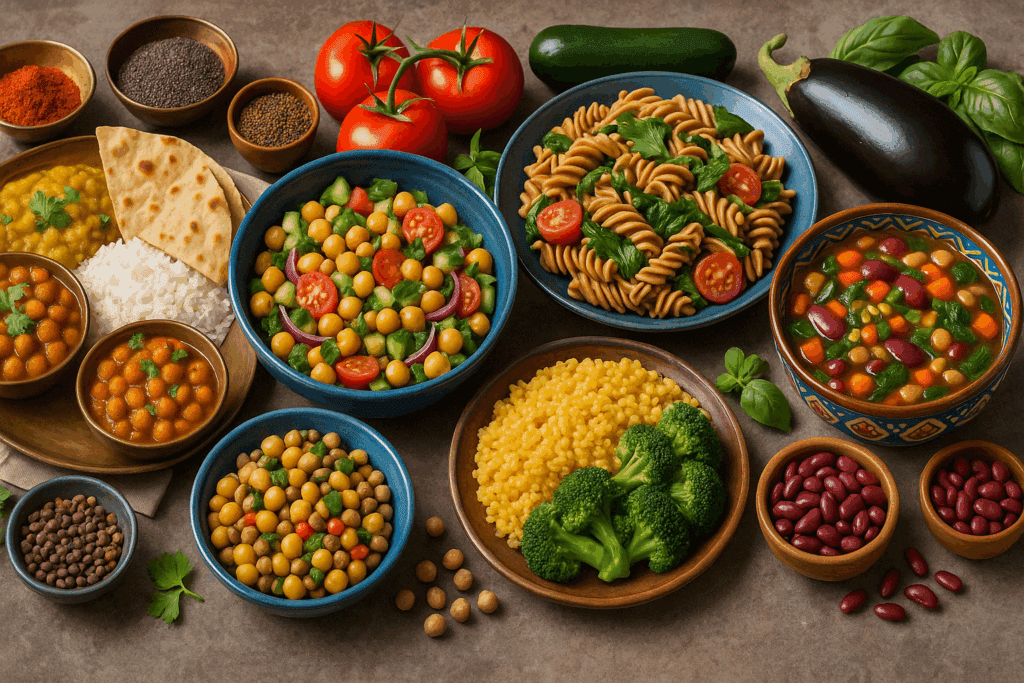
Conclusion: Choosing the Right Path for Health, Performance, and Sustainability
Whether one adopts a vegetarian or vegan diet—or simply moves toward a more plant-based pattern—the key is thoughtful planning and nutrient diversity. Both approaches offer well-documented health benefits, and when structured properly, they can support athletic goals as effectively as omnivorous diets. For those crafting a vegan athlete diet meal plan or seeking to optimize a plant based diet for athletes, the focus should be on whole foods, varied protein sources, and strategic nutrient timing.
As for trending debates like ketogenic diet vs low carb or evaluating if is keto a good diet, the answer ultimately depends on individual goals, values, and health status. While keto can offer metabolic benefits in certain contexts, its sustainability—particularly for plant-based eaters—remains limited. Asking is keto a low carb diet or is keto no carbs can help demystify the trend, but the evidence consistently favors whole, plant-centered eating patterns for long-term health.
In a world of dietary fads and conflicting advice, returning to the basics—whole plant foods, balanced meals, and conscious choices—offers a grounded path to vitality. Whether vegan or vegetarian, plant-based living remains a powerful tool not only for personal well-being but also for planetary health. With the right knowledge and strategy, anyone—from weekend warriors to elite athletes—can thrive on a plant-powered plate.
Was this article helpful? Don’t let it stop with you. Share it right now with someone who needs to see it—whether it’s a friend, a colleague, or your whole network. And if staying ahead on this topic matters to you, subscribe to this publication for the most up-to-date information. You’ll get the latest insights delivered straight to you—no searching, no missing out.
Further Reading:
Vegan vs. Vegetarian: What’s the Difference?
What is the difference between veganism and vegetarianism?
What’s the Difference Between a Plant-Based and Vegan Diet?
Disclaimer
The information contained in this article is provided for general informational purposes only and is not intended to serve as medical, legal, or professional advice. While NewsHealthWatch strives to present accurate, up-to-date, and reliable content, no warranty or guarantee, expressed or implied, is made regarding the completeness, accuracy, or adequacy of the information provided. Readers are strongly advised to seek the guidance of a qualified healthcare provider or other relevant professionals before acting on any information contained in this article. NewsHealthWatch, its authors, editors, and contributors expressly disclaim any liability for any damages, losses, or consequences arising directly or indirectly from the use, interpretation, or reliance on any information presented herein. The views and opinions expressed in this article are those of the author(s) and do not necessarily reflect the official policies or positions of NewsHealthWatch.

